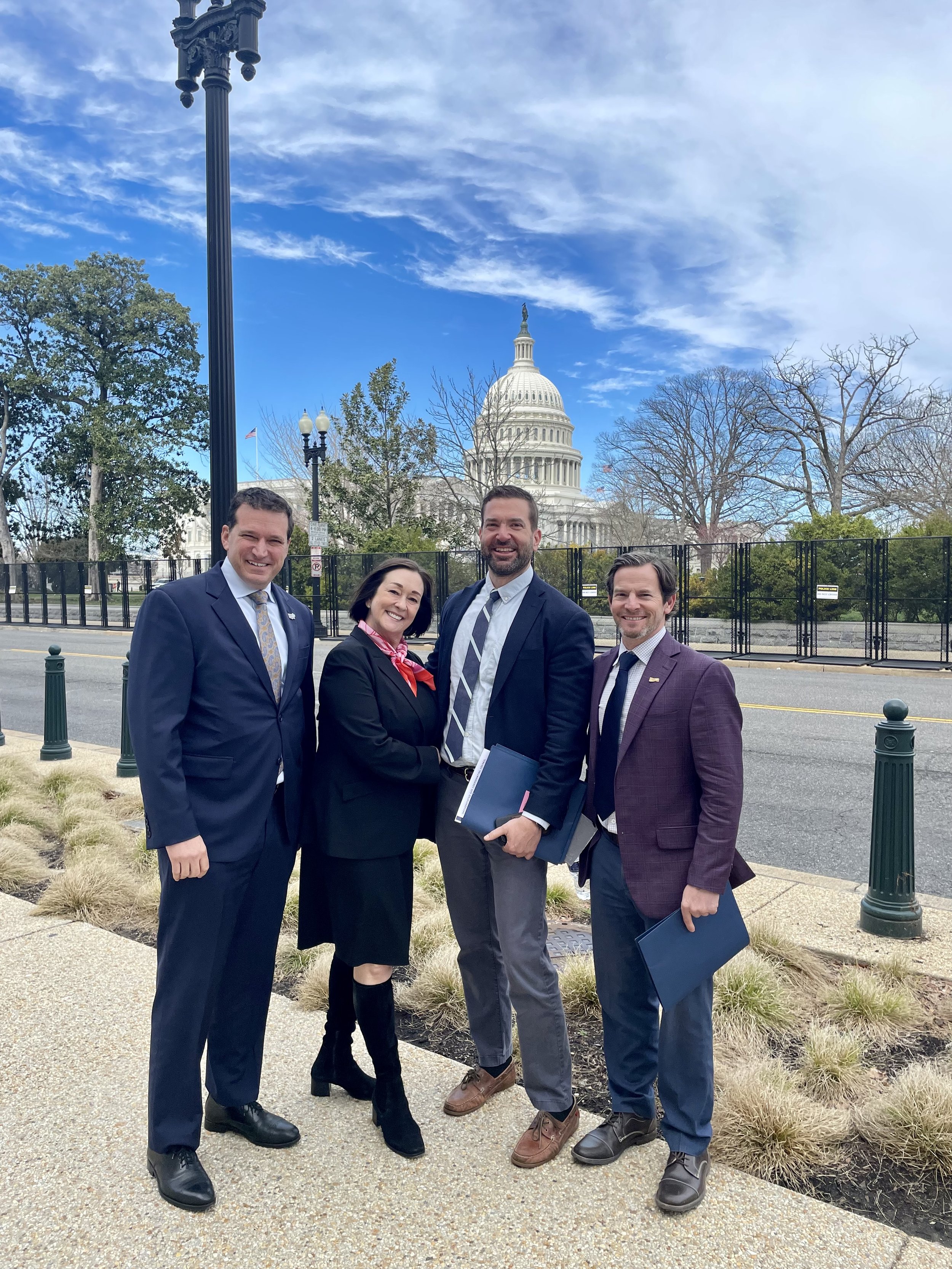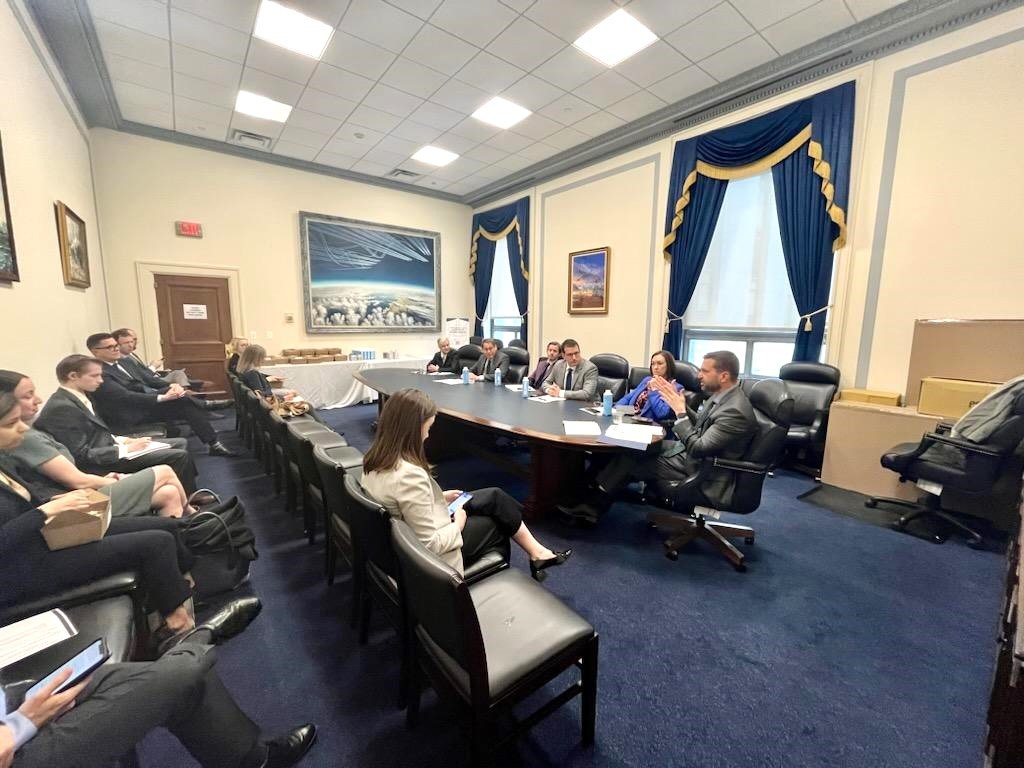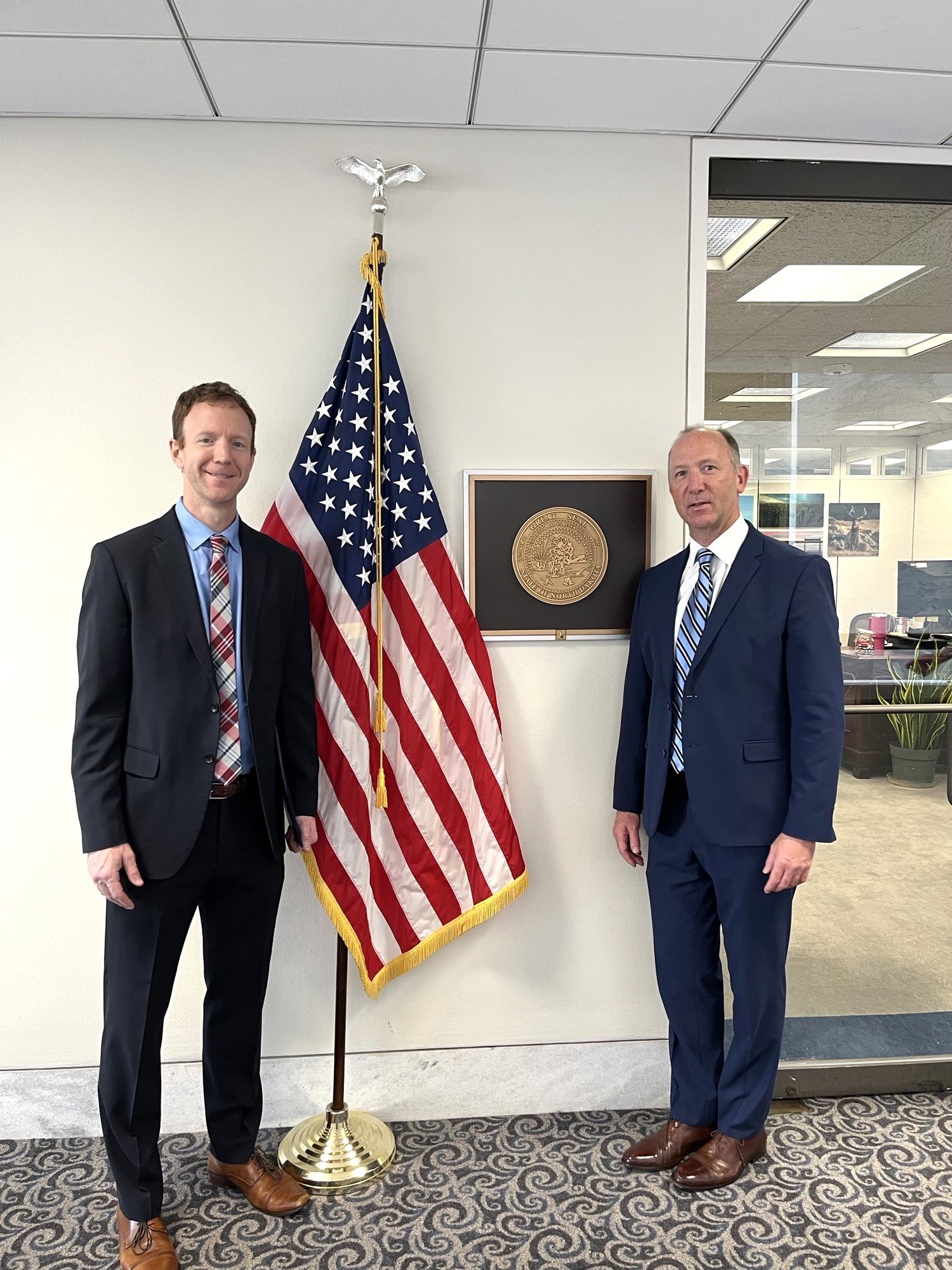Shaping the Future: DGCC’s Congressional Education on Differentiated Gas Policy Roadmap
Differentiated Gas Coordinating Council Blog
March 14, 2024
Last week, members of the Differentiated Gas Coordinating Council (DGCC) convened in Washington, D.C. to unveil the DGCC’s policy roadmap and to educate lawmakers about the advantages of differentiated gas, the role government can play, and strategies to cultivate a strong differentiated gas market.
Differentiated gas is geologic natural gas characterized by the assessment and verification of its superior environmental performance criteria, particularly methane measurement, across the natural gas value chain. The market for differentiated gas is made possible by new measurement practices, emissions verification and validation, and established transparency. The rapid evolution of differentiated gas is underscored by the industry's commitment to producing reliable, high-quality data that translates into significant on-the-ground environmental benefits. This shift is instrumental in transitioning the energy sector towards a more sustainable and transparent future, aligning closely with global environmental objectives.
Tom Hassenboehler, Executive Director of the DGCC, emphasized the importance of this initiative. “Policymakers in Washington must understand the rapid growth and evolution taking place in the energy sector all around the country. Differentiated gas presents unprecedented opportunities for reducing emissions and surpassing conventional regulatory benchmarks. Our roadmap is a blueprint for America to spearhead the global shift towards a sustainable, transparent energy future,” he said.
On Wednesday, the DGCC presented the “Policy Roadmap to Support a Market for Differentiated Gas” to Congress, featuring a detailed panel discussion and briefing for Congressional staffers. This comprehensive roadmap offers clear, actionable recommendations for policymakers at the state, federal, and international levels to drastically reduce methane emissions in oil and gas operations by fostering differentiated gas markets.
On Thursday, the DGCC published the roadmap and met with 20 Congressional offices. During these meetings, DGCC members educated Members of Congress and their staff on the importance of differentiated gas and advocated for the recommendations provided in the roadmap. These recommendations include:
1. Harmonize methane regulations and policies to avoid overlapping, duplicative, or contradictory programs;
2. Support the Department of Energy’s “Greenhouse Gas Supply Chain Emissions Measurement, Monitoring, Reporting, Verification (MMRV) Framework” to promote best practices, common criteria, and definitional consistency;
3. Establish differentiated gas procurement programs at the federal and state level;
4. Bolster technical support from national laboratories;
5. Improve workforce development to deploy advanced emissions measurement technologies and develop differentiated markets;
6. Promote global U.S. leadership on methane measurement and reporting;
7. Allow regulated utilities to recover the cost of differentiated gas adoption; and
8. Allow utilities to integrate differentiated gas into their decarbonization plans.
The DGCC envisions a future where differentiated gas catalyzes significant shifts throughout the oil and gas industry. Should these recommendations be taken, the DGCC believes that deep, cost-effective reductions in methane emissions can be made. By 2030, the natural gas market will likely experience:
Regulatory Shift & Market Split: Following comprehensive methane regulations, the natural gas market will bifurcate into a cost-focused “regulatory baseline” segment, and a premium “differentiated” segment with lower emissions.
Advanced Monitoring Deployed at Scale: Economies of scale driven by the widespread adoption of aerial, satellite, and continuous monitoring will revolutionize leak detection across the natural gas value chain, enhancing emissions controls and transparency.
Differentiated Gas Emergence: A significant share of U.S. natural gas will surpass federal standards, assessed as differentiated gas, driving substantial emissions reductions and potentially creating market premiums.
Validation & Trust: A robust MMRV system ensures the integrity of differentiated gas, with comprehensive assessments eliminating selective reporting and addressing uncertainty.
Market & Regulatory Evolution: The market features varied tiers of differentiated gas, reflecting methane intensity. Harmonized regulations at all levels support transparent trading and global standard adoption.
Innovation & Leadership: U.S. innovation in methane monitoring will spur the growth of specialized startups and set global benchmarks, significantly cutting GHG emissions and shaping practices in adjacent sectors.
Looking ahead, the DGCC is committed to expanding its governmental engagement, advocating for sophisticated, data-driven emission assessments and promoting reliable, transparent emissions reporting. This initiative underscores the role of natural gas as a cornerstone fuel in America’s and the world’s transition to a net-zero future.
For more insights into differentiated gas and the DGCC's ongoing efforts, subscribe to our mailing list or contact us at info@dgccouncil.com.



